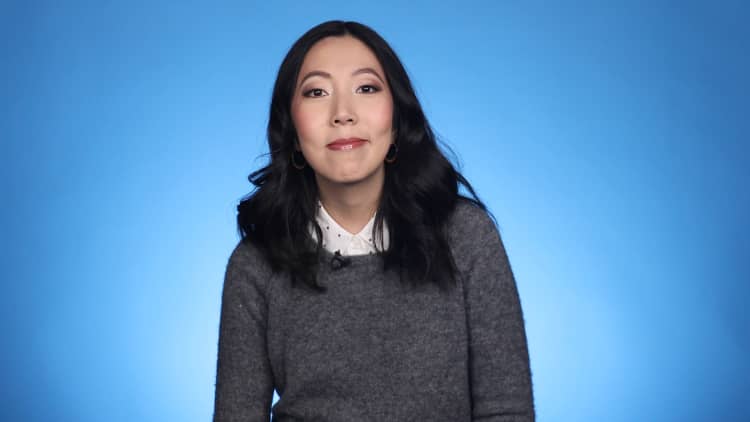As Salesforce's Chief Equality Officer, Tony Prophet is responsible for helping the software company build a diverse and inclusive workforce.
Not only does this include ongoing equal pay assessments to ensure that every employee is paid fairly, it also includes creating an unbiased hiring process that is welcoming to everyone.
"It's super important that when you're looking for new talent that you're not simply looking for a pedigree, like if someone went to this school or has exactly this many years of experience at this specific company," he tells CNBC Make It. "That's a short-cut and it puts you in a very shallow pool when you're looking for talent."
Since joining Salesforce in September 2016, Prophet has interviewed many candidates who are interested in working for the tech company. Rather than focusing on an applicant's affiliation with a prestigious school or company, Prophet says he looks at a candidate's qualifications to do the job and their ability to learn from past mistakes.
To determine whether or not a person possesses these qualities, he relies on one simple interview question.
"I'd say one of my key go-to questions is, 'When is a time when you didn't get it all right?'" he says. "And then more importantly, 'What did you learn from it and how did you incorporate that into your career going forward?'"
Prophet explains that while past accolades and accomplishments are nice to talk about in an interview, a candidate's ability to answer this question authentically is ultimately what will win him over.
"It's important for me personally to have folks that bore up a growth mindset, that are open to learning, open to hearing about the experiences of others and open to being transparent about their failures," he says. "Don't just promote all of your successes, but be transparent and say, 'Hey, here's a place where I had a challenge and here's what I learned from it."
Like Prophet, Facebook VP of product design Julie Zhuo says she's interested in hearing about how a candidate deals with failure.
"My favorite interview question is to ask someone, 'Hey, tell me about a hard situation — something really challenging that you went through in the last year or last two years,'" she told CNBC Make It. "After they describe it to me, I ask, 'Well, if you can go back to the very beginning and change anything about how you went through it, what would you do differently?'"
Instead of glossing over the question with a vague answer like, "I wouldn't do anything differently because everything that didn't go well was outside of my control," Zhuo says she looks for candidates who are open and honest about what they would go back and change.
"I get a lot more excited about that candidate, because they're showing a lot more productivity and they're showing that they can learn and grow really quickly," she says.
Like this story? Subscribe to CNBC Make It on YouTube!
Don't miss: Suzy Welch: Here's how to answer Facebook's favorite interview question



